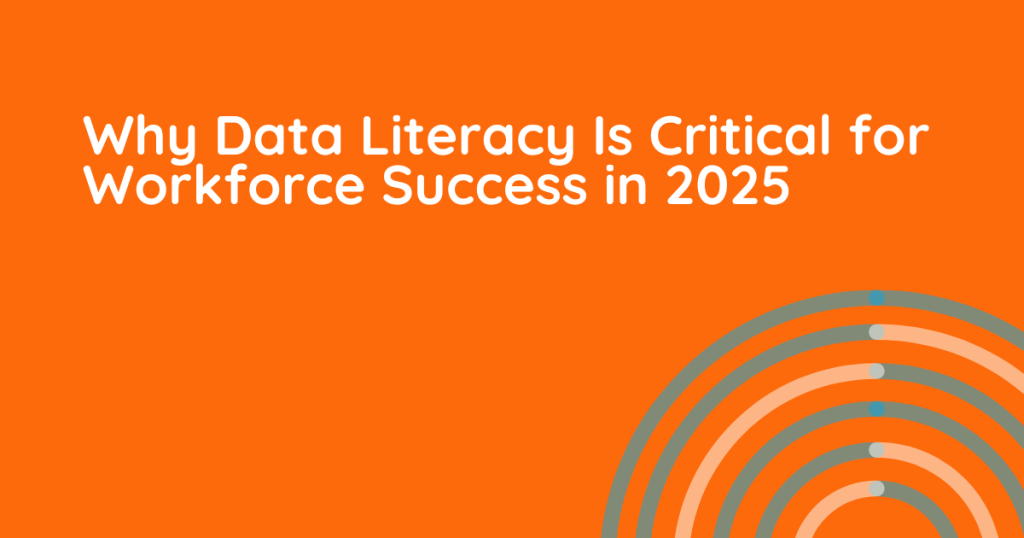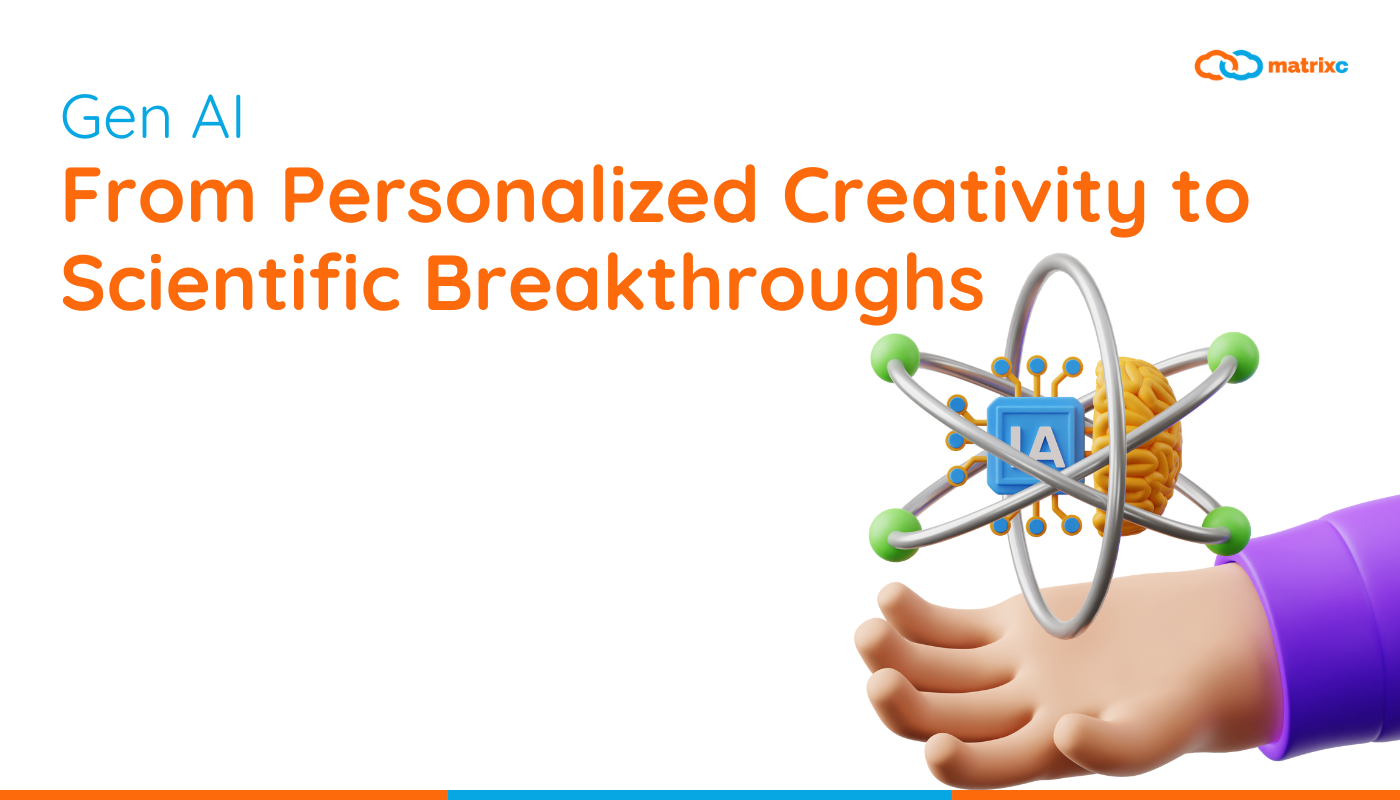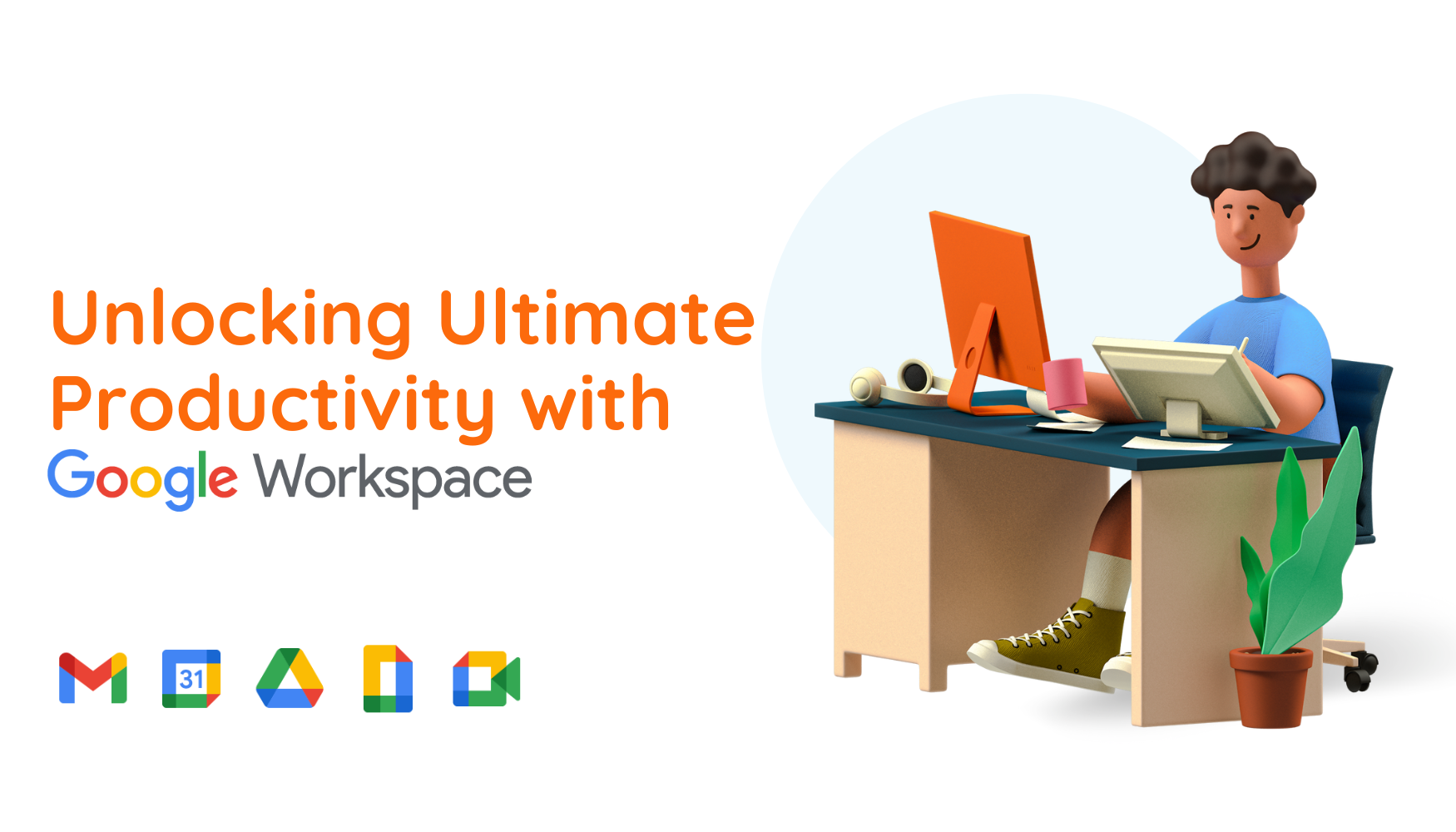Is your workforce prepared for the data-driven future of 2025, where data literacy is as essential as the air we breathe?
Like a compass in an uncharted sea, data guides navigation.
Companies that prioritize data literacy will see enhanced decision-making, operational efficiencies, and competitive advantage.

Understanding Data Literacy
Data literacy is crucial for workforce adaptation.
In essence, data literacy enables individuals to read, understand, analyze, and communicate data effectively. As we move toward 2025, the ability to decipher substantial volumes of data becomes increasingly indispensable to contributing to organizational growth. Ultimately, data comprehension is no longer the domain of specialists alone but a requisite skill for all employees.
Mastery of these skills empowers staff.
The role of data literacy extends beyond analysis – it enhances strategic decisions and informs underlying business processes while driving innovation.
Forward-thinking organizations invest in enhancing data literacy, gaining a foundational edge. As we accelerate towards the intricate data landscape of 2025, having a workforce fluent in data interpretation will significantly impact outcomes. Achieving this requires continuous learning, upskilling, and development in data skills, fostering innovation and uncovering efficient pathways for growth.
The Current Workforce Landscape
In today’s fast-evolving business world, the workforce is undergoing a profound transformation driven by digital innovation, HR strategies, and varied data sources in data-centric operations.
This shift has ushered in an unprecedented demand for skills that can navigate complex data ecosystems effectively. Companies are seeking employees who not only understand data but can leverage it to drive business value and influence strategic outcomes.
Consequently, organizations are prioritizing the development of data literacy across all levels, seeing it as essential to maintaining competitive advantage. Employees equipped with this skill are increasingly integral to strategic initiatives and operational efficiency.
As the pace of technological change accelerates, the ability to interpret and utilize data insights will define career success and organizational leadership. Those who embrace data literacy are poised to capitalize on emerging opportunities in their respective fields.
Ultimately, data literacy is not just a skill but a pivotal career asset.

The Role of Data Literacy in Career Advancement
In today’s rapidly evolving business landscape, data literacy is becoming a cornerstone for career progression and professional impact.
For C-level executives and aspiring leaders alike, proficiency in data literacy offers the distinctive advantage of transforming abstract numbers into actionable strategies. This coveted competency not only enhances personal decision-making but also empowers individuals to spearhead innovative solutions within their sectors. As organizations increasingly prioritize data-driven decision-making, data-literate professionals find themselves at the forefront of high-impact projects.
Consequently, mastering data literacy can lead to broader responsibilities and accelerated career growth. By interpreting data effectively, professionals showcase their capacity to contribute to informed business decisions and strategic initiatives that propel organizations toward success.
For companies, investing in workforce development and the data literacy of their workforce translates into substantial benefits, such as improved efficiency, scalability, and growth. This investment fosters a culture where data-driven insights become second nature, paving the way for confident leadership and competitive advantage in an ever-changing market landscape. Data literacy is more than an individual asset; it’s a strategic lever for professional and organizational growth.
Key Skills for Data Literacy
Data literacy involves more than just understanding data; it encompasses the ability to interpret and apply it effectively.
In 2025, data-driven leadership, a critical skill set, ensures seamless integration of analytics in decision-making, making it essential for executives to foster a culture of continuous learning and adaptability.
Understanding statistical concepts becomes paramount as leaders need to interpret complex datasets to uncover actionable insights that drive strategic planning and innovation.
Proficiency in data visualization tools allows professionals to translate raw numbers into compelling narratives, making data insights accessible and engaging for varied stakeholders.
Data literacy, thus, is not merely a skill; it’s a strategic capability that ensures sustained business growth and operational efficiency.
How Data-Driven Decision-Making Impacts Success
Data-driven insights enhance organizational success and efficiency.
Leaders who prioritize data-driven decision-making unlock the full potential of their teams. They transform raw numbers into strategic actions that propel businesses forward, enabling the identification of lucrative opportunities and the avoidance of costly mistakes. Therefore, fostering data literacy empowers teams to leverage insights for optimum performance.
Organizations see data’s impact on productivity firsthand.
By incorporating data into everyday decision-making processes, executives ensure that their strategies are grounded in reality-based insights rather than assumptions. This approach yields measurable outcomes and drives organizations towards scalable growth and increased efficiency.
The successful embrace of data-driven decision-making signifies a decisive step towards future excellence. By 2025, companies must prioritize data literacy as a core competency, ensuring their workforce is equipped to navigate the complexities of an increasingly data-centric world. Partnering with Matrix Connexion, renowned for pioneering digital transformation, secures this competitive edge.
Why Data Literacy is Critical for Workforce Success in 2025
In 2025, data literacy will no longer be an optional skill but a necessity for workforce success, helping transform intuitive decision-making into informed strategies that generate measurable growth.
It empowers employees to interpret data effectively, influencing key business decisions.
This capability to convert data insights into actionable plans will become a fundamental driver for competitive advantage, enabling organizations to enhance scalability, efficiency, and innovation in a rapidly evolving digital landscape.
By prioritizing data literacy and workforce development now, you prepare your workforce to excel in the future, positioning your organization for sustained success. Partner with Matrix Connexion to develop a data-literate culture that meets tomorrow’s challenges. Our proven strategies will ensure your team adeptly navigates the future.
Benefits of Data Literacy for Your Career
Data literacy propels your career by enabling data-driven decision-making that aligns with your organization’s goals.
With it, you can leverage data insights to identify opportunities and optimize processes for efficiency and growth. This skill set distinguishes you from peers and positions you as a forward-thinking leader.
As companies prioritize “data-first” approaches, data literacy facilitates your rise to the ‘backbone’ of strategic initiatives.
Increased Employability
In today’s data-driven economy, proficiency in data literacy significantly enhances job prospects, making it a cornerstone of employability by 2025. Organizations value individuals who can convert data into actionable insights.
Developing data literacy and upskilling equips professionals to meet the demands of an evolving business landscape, setting them apart as invaluable assets. This skill fosters innovation and adaptability, key qualities for workforce success.
Data-literate employees are 75% more likely to make informed decisions that drive business growth.
Future-focused strategies should include enhancing data literacy to remain competitive. Organizations need proficient employees who can innovate and navigate complex challenges. Investing in these skills ensures both individual career progression and organizational success.
Competitive Edge in the Job Market
In a rapidly evolving job market, data literacy offers a vital competitive edge for career advancement.
By 2025, data will continue to shape consumer interactions, driving priorities for nearly every industry. Candidates proficient in data literacy will stand out by transforming this data into strategic insights, making them indispensable.
Employers increasingly value the ability to navigate and interpret complex data sources, as these skills directly impact decision-making and operational efficiency. Data literacy thus not only enhances individual career prospects but also contributes to organizational success.
Being data literate equips professionals to spearhead data-driven projects, fostering innovation and ensuring scalability in their organizations. This ability to bridge data with strategic vision is crucial to thrive in future job markets.
Investing in data literacy today means preparing for tomorrow’s challenges with confidence and foresight.
Common Misconceptions About Data Literacy
Many assume data literacy is only relevant for tech roles, neglecting its broader impact across all job functions.
However, as digital transformation redefines work environments, everyone—from marketing to HR—requires basic data literacy. This misconception can lead to missed opportunities for leveraging data effectively, hindering both personal and organizational growth.
Additionally, some believe it demands a degree in data science. In reality, data literacy is about understanding and using data to improve decision-making, applicable at all levels of an organization.
Thus, addressing these misconceptions is crucial for fostering a workforce that maximizes productivity and efficiency, and integrates HR strategies with data literacy. By embracing data literacy as a core competency, organizations can unlock new growth avenues and remain competitive in a data-driven business landscape.
Building a Data-Literate Culture in Organizations
Creating a data-literate culture requires a strategic vision that aligns with the organization’s long-term goals.
In 2025, successful organizations will prioritize data literacy at all levels, integrating it into their core values and daily operations. This transformation is not just about technology but also about empowering employees with the right mindset.
To achieve this, businesses should invest in continuous learning programs that focus on data skills, while fostering an environment that encourages curiosity and innovation. Providing employees with easy access to data tools and resources will facilitate this process.
Leaders play a crucial role in this cultural shift, as they must champion data literacy by demonstrating its value and setting a precedent for data-driven decision-making. By promoting open dialogue about data insights, they can inspire their teams to think critically and act strategically.
Fostering a data-literate culture enhances collaboration, driving efficiency and growth.
Tools and Resources for Improving Data Literacy
Enhancing data literacy requires strategic investments.
Successful organizations are turning to cutting-edge online courses and workshops. These platforms equip teams with the essential competencies to navigate complex datasets, allowing for real-time analysis and informed decision-making. Additionally, access to tools like interactive dashboards and visual analytics can demystify raw data, fostering widespread understanding.
Leader-driven initiatives amplify these advantages.
Integrating mentoring programs and collaborative projects – where team members can apply learning in hands-on situations – is as vital as formal training, cultivating an environment where data literacy thrives.
By bridging the gap between theory and practice, businesses facilitate employees’ journey toward data literacy. Such efforts position organizations to thrive in the increasingly data-driven landscape beyond 2025, driving significant improvements in operational scalability, enhanced efficiency, and sustainable growth.
Challenges in Achieving Data Literacy
In the pursuit of digital transformation, why does data literacy pose a significant challenge for modern enterprises?
Data-driven decision-making requires employees to interpret complex information accurately. However, many organizations lack a comprehensive framework to develop these critical skills. Without this, efforts to enhance data literacy may falter, resulting in missed opportunities and stifled innovation.
Furthermore, there’s an inherent challenge in aligning diverse roles within a company to a unified data literacy strategy, requiring close collaboration with HR to ensure optimal training initiatives. Different departments often have varying capabilities and requirements, which can complicate training initiatives. Tackling this disparity ensures that all team members can contribute to data-focused objectives.
Resistance to change is another barrier, especially among employees accustomed to traditional processes. To overcome this, businesses must foster a culture that encourages continuous learning and digital adaptation. Emphasizing change as an opportunity for growth can mitigate apprehensions.
Addressing these challenges requires structured approaches and targeted investments that prioritize skill development.
Importance of Continuous Learning
Continuous learning and upskilling are the foundation for adapting to the rapid transformations in today’s digital landscape.
In 2025, data proficiency will define competitiveness, with data-literate employees contributing significantly to business success. Companies that invest in workforce development and training will maintain an adaptable workforce.
Learning doesn’t stop with initial training; it’s about staying proactive and anticipating shifts. By regularly updating skills, employees can innovate and solve problems more effectively.
A culture of learning fosters resilience, preparing organizations for future disruptions. This adaptable workforce can meet the demands of Industry 4.0 with agility and foresight.
Structured learning programs drive engagement and empower employees to excel continuously.
How to Begin Your Data Literacy Journey
Starting your data literacy journey can feel overwhelming, but with a strategic approach, you can take control of it.
Understand the key data skills relevant to your job role.
Focus on developing foundational knowledge by exploring online resources that cover data storytelling and analytics at a pace that suits your schedule, enabling you to grasp the fundamentals.
Engaging with industry leaders in data-driven communities can offer a wealth of knowledge and promote active learning, highlighting the importance of diverse data sources. Matrix Connexion is committed to supporting this journey by providing insights and resources. By taking action now, you’ll position yourself ahead of the curve, transforming data into actionable insights that drive business success, scalability, and efficiency.
Real-World Examples of Data Literacy Success
Recently, a leading retailer leveraged data literacy to optimize inventory management and improve demand forecasting, which led to a 20% reduction in overstocking and stockouts.
This transformative shift extended across departments and quickly began to yield benefits.
Employees were able to harness existing data, analyze consumer behavior, and make data-driven decisions, ultimately resulting in a streamlined supply chain process and enhanced customer satisfaction.
Such tangible outcomes underscore the value of data literacy as a cornerstone of successful business operations, positioning companies to adapt swiftly in an evolving market landscape. Emphasizing “data fluency” as an organizational goal will not only fortify resilience but also foster sustained growth.
The Future of Work and Data Literacy
As 2025 approaches, developing data literacy will be essential for maintaining a competitive edge. Leaders who invest in enhancing their team’s data capabilities will nurture an environment where informed decisions and innovative strategies become the norm.
In this data-centric era, merely having data is not enough; understanding it to drive results is imperative. Emphasizing data literacy enables organizations to thrive amidst digital transformation. By cultivating these skills, leaders ensure their workforce can harness the power of data, which will ultimately drive scalability and foster sustainable growth.
Emerging Trends in Data Skills
In today’s ever-evolving landscape, data skills are pivotal for navigating the complex terrain and achieving meaningful success.
The rise of data-driven decision-making as a business norm has necessitated advanced skill sets, including data visualization and storytelling. Executive teams across all sectors seek employees who can translate granular data into actionable insights. As a result, professionals with these competencies are witnessing remarkable career growth, proving indispensable to strategic development.
Moreover, collaboration is key in a digitally connected world. Teams that effectively leverage diverse data skills stand out by combining technical and analytical expertise. This fusion enables agile response to industry shifts and aligns business efforts with market demands.
In the coming years, organizations aiming for superior performance will prioritize nurturing a data-literate workforce. As the digital transformation accelerates, those who integrate emerging data skills while aligning them with organizational goals will gain a distinct competitive advantage. Data literacy, thus, becomes not just a skill but a strategic lever for fostering innovation and driving growth.
Why is data literacy important in the workplace?
Data literacy has become a cornerstone of modern workplace success, empowering teams to make informed and strategic decisions for better outcomes. Understanding data is no longer a mere skill but a key driver of innovation.
Organizations should prioritize a culture that embraces data-driven strategies. This not only enhances decision-making but also fosters a competitive edge in the marketplace.
As we progress towards a data-centric future, organizations can leverage data literacy initiatives to capitalize on untapped insights and trends, thereby amplifying business growth. Cultivating these skills ensures the workforce remains versatile and adaptable.
Matrix Connexion is here to bridge the gap, offering scalable solutions that transform data into actionable insights. By adopting our tailored strategies, C-level executives can expect increased efficiency and improved growth trajectories. A commitment to enhancing data literacy today will undoubtedly position your organization for success in 2025 and beyond. Let’s unlock new opportunities together.
















